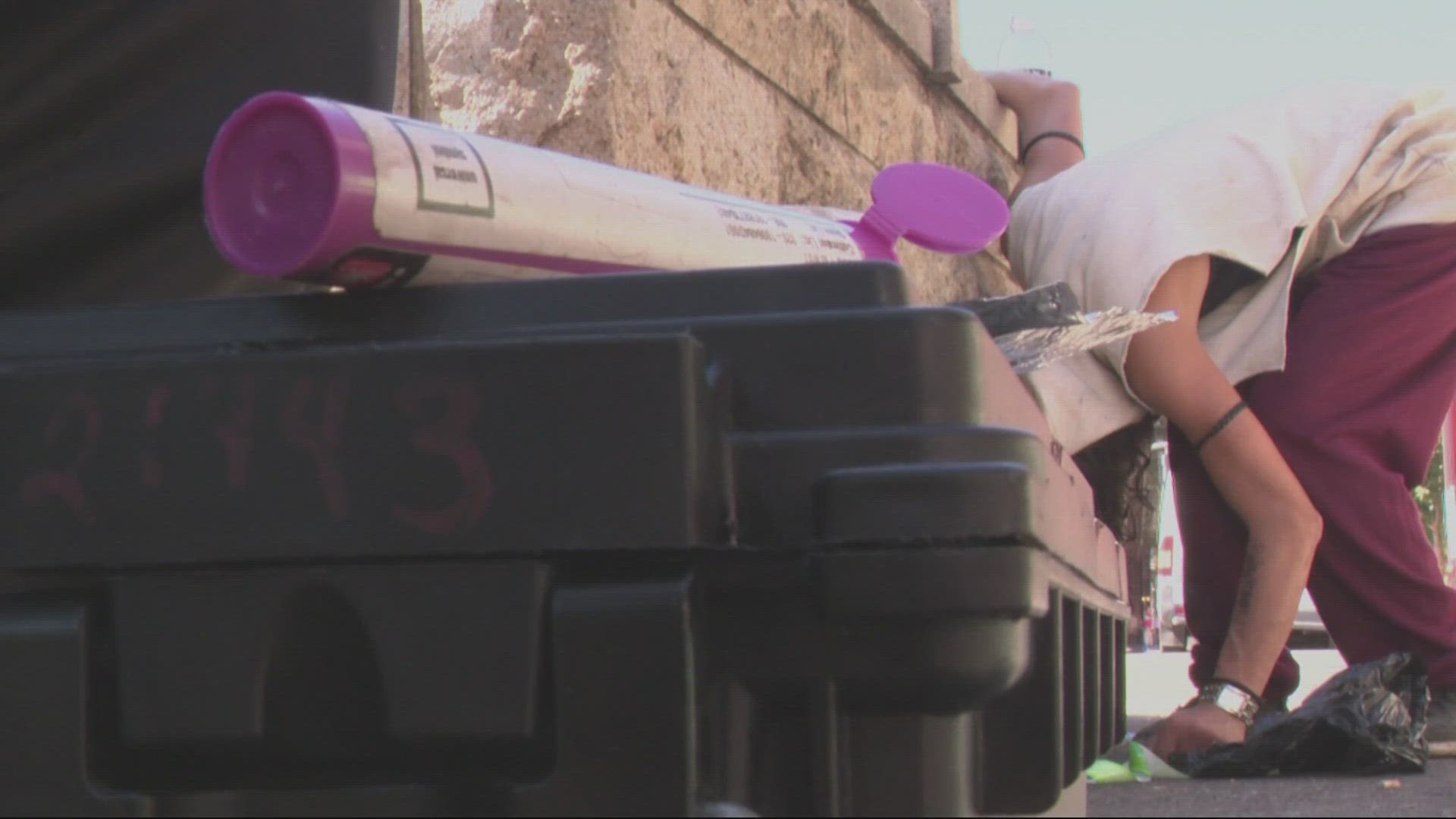SALEM, Ore. — Oregon Gov. Tina Kotek signed House Bill 4002 on Monday, according to the legislature's information system, officially rolling back a key portion of Measure 110 and recriminalizing drug possession in the state. The bill was one of the most significant pieces of legislation to emerge from the 2024 session, passing with bipartisan support in both the House and Senate.
In a letter dated Monday and addressed to Senate President Rob Wagner and House Speaker Julie Fahey, Kotek said the bill, together with its treatment-focused companion Senate Bill 5204, "represents a package that encourages treatment first, while balancing the need for accountability."
Oregon voters approved Measure 110 in 2020. The law decriminalized small amounts of hard drugs, making possession punishable only by a fine. It also allocated new funding for addiction treatment programs, but that half of the measure lagged behind, and in the meantime the statewide explosion in fentanyl use sparked widespread criticism of the experiment.
Faced with the threat of a Measure 110 rollback initiative on the November 2024 ballot, lawmakers began the session with a clear goal of passing their own overhaul plan. The result was HB 4002, which rolls back decriminalization by creating a new "drug enforcement misdemeanor" for simple possession cases, although it leaves the treatment-focused parts of Measure 110 largely intact.
A person charged with the misdemeanor would initially face an 18-month probation period, with the possibility of up to 30 days in jail if they violate their probation or up to six months for more serious violation. Offenders could be released from jail early to attend drug treatment. The recriminalization portion goes into effect Sept. 1.
The bill also creates a framework for "deflection" programs, which would be set up on a county-by-county basis at the discretion of local prosecutors and police. In counties that choose to set it up, the program would give law enforcement the option to refer a person to a behavioral health and treatment program instead of sending them into the court system.
Kotek wrote in her letter that she wanted to address "potential issues regarding implementation" of HB 4002, adding that its success would depend on "deep coordination" between law enforcement, courts and community mental health programs, particularly when it comes to standing up the deflection programs. The county-by-county approach to deflection has to be balanced with the need for "statewide consistency and standardization," she said.
Critics of HB 4002 have argued that decriminalization will be a step backward for Oregon and will undo progress made in reducing racial disparities associated with drug enforcement. Kotek acknowledged that possibility in her letter, writing that the pre-arrest deflection programs "can help mitigate the racial and ethnic disparities this legislation is projected to create."
She also acknowledged that recriminalization is likely to increase the number of defendants who lack legal representation due to Oregon's beleaguered public defender system.
Kotek said she will direct the state's Criminal Justice Commission to use its authority over the deflection programs to encourage standardization for paperwork and coordination between different law enforcement agencies, and to help forecast the spike in cases that HB 4002 is likely to generate.
"The Department of Corrections shares my expectation that implementation of House Bill 4002 cannot be business as usual," she wrote. "DOC will exhaust non-jail opportunities for misdemeanor sanctions through rulemaking and work to promote a consistent approach for supervision when an individual is released to treatment."

